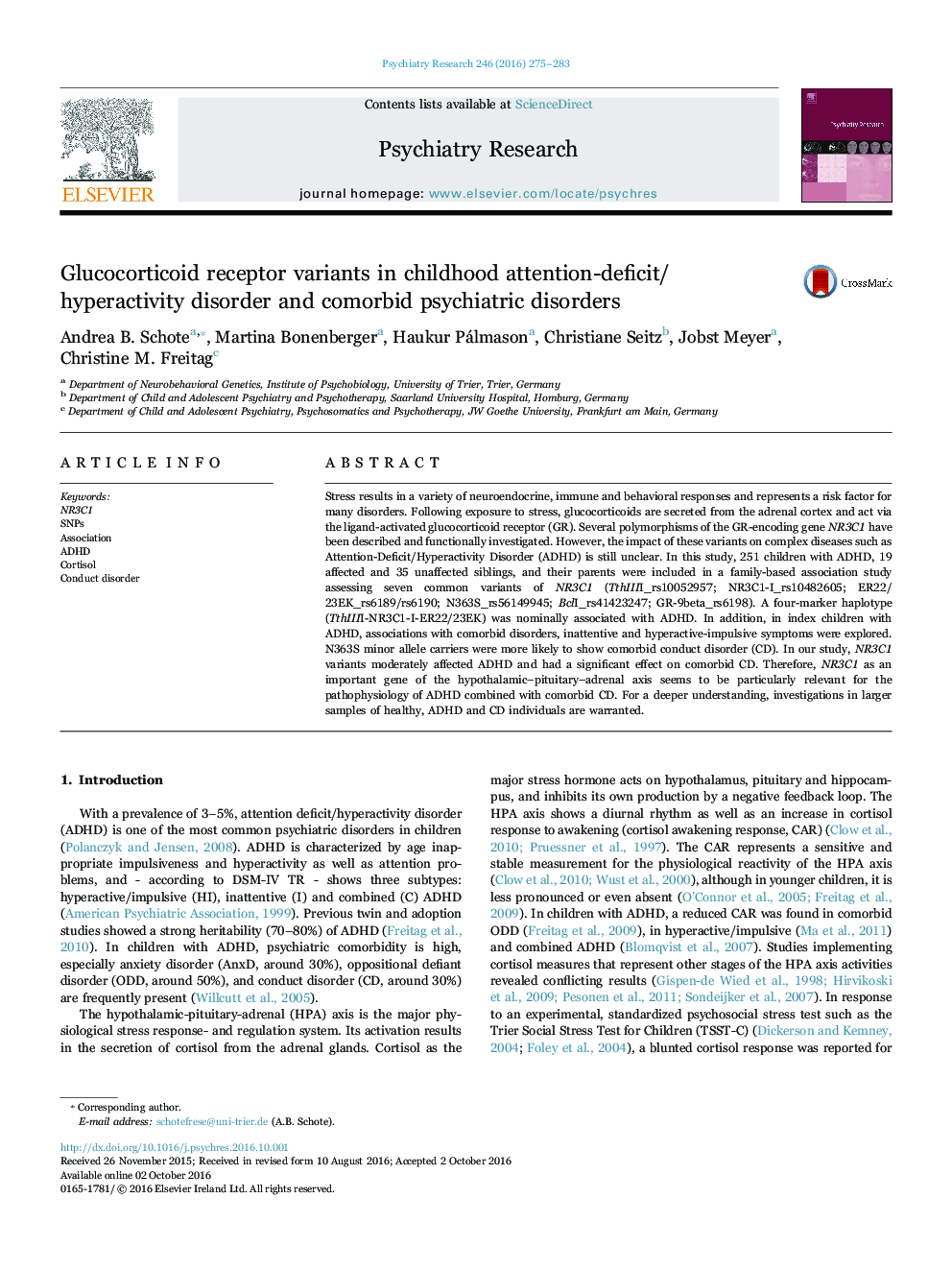| Article ID | Journal | Published Year | Pages | File Type |
|---|---|---|---|---|
| 4933793 | Psychiatry Research | 2016 | 9 Pages |
Abstract
Stress results in a variety of neuroendocrine, immune and behavioral responses and represents a risk factor for many disorders. Following exposure to stress, glucocorticoids are secreted from the adrenal cortex and act via the ligand-activated glucocorticoid receptor (GR). Several polymorphisms of the GR-encoding gene NR3C1 have been described and functionally investigated. However, the impact of these variants on complex diseases such as Attention-Deficit/Hyperactivity Disorder (ADHD) is still unclear. In this study, 251 children with ADHD, 19 affected and 35 unaffected siblings, and their parents were included in a family-based association study assessing seven common variants of NR3C1 (TthIIII_rs10052957; NR3C1-I_rs10482605; ER22/23EK_rs6189/rs6190; N363S_rs56149945; BclI_rs41423247; GR-9beta_rs6198). A four-marker haplotype (TthIIII-NR3C1-I-ER22/23EK) was nominally associated with ADHD. In addition, in index children with ADHD, associations with comorbid disorders, inattentive and hyperactive-impulsive symptoms were explored. N363S minor allele carriers were more likely to show comorbid conduct disorder (CD). In our study, NR3C1 variants moderately affected ADHD and had a significant effect on comorbid CD. Therefore, NR3C1 as an important gene of the hypothalamic-pituitary-adrenal axis seems to be particularly relevant for the pathophysiology of ADHD combined with comorbid CD. For a deeper understanding, investigations in larger samples of healthy, ADHD and CD individuals are warranted.
Related Topics
Life Sciences
Neuroscience
Biological Psychiatry
Authors
Andrea B. Schote, Martina Bonenberger, Haukur Pálmason, Christiane Seitz, Jobst Meyer, Christine M. Freitag,
